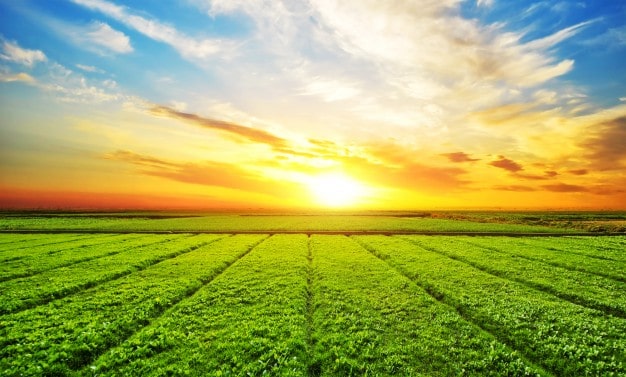Potentials of AI, Big Data and Blockchain In Meeting The Global Agricultural Demands
- July 21, 2019
- Posted by: admin
- Categories: Artificial Intelligence, Health care, IoT

Global Agriculture Demands
The growing concern of global warming is not just affecting general climate all over the world – it has an indirect yet more extensive effect on global agriculture. Experts predict a global food production shortage in the future – all because of climate change that is going to affect agriculture, leading to a 59 – 98% growing demand for food by the year 2050.
So, very obviously the question that arises is – is there no way this demand can be fulfilled with the help of modern technologies? That is where Blockchain and AI in agriculture come into play.
According to experts, low productivity and lack of visibility through the supply chain are two of the major obstacles faced in agriculture today. These challenges can be tackled using Blockchain and AI, which can boost agricultural productivity.
How can AI benefit agriculture?
Artificial Intelligence can be effectively used to garner data and accurate insights related to a wide variety of aspects that are involved in supply chains. With insights into weather forecasts, disease prediction, soil nutrients estimation, etc., agricultural productivity can be improved to a large extent.
For instance, IBM has invested huge amounts to install satellites that can help to locate unproductive swathes of land. Whether it is a crop disease, or pests or soil quality every minute detail affecting crops can be monitored. Such mechanisms are especially suitable to monitor huge areas of agricultural fields which would need several man-hours of physical labor.
How can Blockchain benefits be leveraged?
Satellites and other aerial platforms can be integrated into a Blockchain ledger so that the information can be tracked and updated in real-time using IoT devices. Blockchain technology can help in feeding live information and send alerts in case of anomalies so that rectification measures can be implemented promptly. Estimates suggest that IoT implementation can increase food production by up to 70%. (Source)
Global estimates state that almost 30 to 50% of the value of total produce is lost owing to ineffective supply chain processes. (Source) To counter this, in many countries such as Australia, farmers are already using Blockchain-enabled mechanisms to track the levels of crop productivity and lower the wastage.
Apart from crop productivity, Blockchain Application in Agriculture can also bring in a higher degree of transparency in agricultural supply chains. Supply chains can be monitored conveniently and it will also open up improvement areas – help to rectify ineffective processes and enforce better quality control.
Benefits of Big Data in Agriculture
Big Data and predictive analytics are being used to develop advanced machines that are equipped with complex sensors that can detect and extract environmental data. The Role of Data engineering in Agriculture is mostly focused around precision farming which is expected to boost crop productivity and process efficiency.
Studies suggest that an improvement of crop yield up to 70% can possibly be achieved using data-driven advanced technologies. (Source)
Conclusion
Experts are already working to address agricultural challenges by maximizing current resources so that the ever-increasing global population can be adequately fed. Although Blockchain and AI are still in a nascent stage, their potential in creating Smart Farming is certainly infinite.
